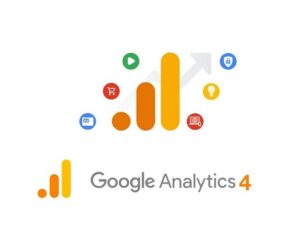Does Website Speed Affect Your Google Ranking? The Ultimate Guide
Blog | Sunday - 13 / 04 / 2025 - 10:17 am
Page speed is a critical factor in the world of digital marketing and SEO. One of the most common questions that arises is: Does website speed affect your Google ranking? The simple answer is yes, and it’s more important than you might think. But how exactly does it influence rankings, and what can you do to ensure your website’s speed is optimized for success? This ultimate guide will explore the relationship between page speed, fast-loading websites, and Google ranking factors, giving you the insights you need to boost your website’s performance and visibility.

page speed
fast-loading website
Google ranking factors
Understanding Page Speed and Its Importance
Page speed refers to the time it takes for a webpage to load fully. This can include how long it takes for text, images, videos, and other content to appear on the screen. In today’s fast-paced digital environment, users have little patience for slow websites. According to studies, even a delay of just one second in page loading can lead to a significant drop in user satisfaction and conversions.
But why is page speed such a crucial factor for Google? Google’s main goal is to provide users with the best possible search experience, and that includes delivering fast, responsive websites that satisfy user needs. As a result, fast-loading websites tend to rank better in search engine results pages (SERPs) than slower ones.
How Google Uses Website Speed as a Ranking Factor

page speed
fast-loading website
Google ranking factors
Google has always emphasized the importance of user experience in its ranking algorithms. With that in mind, Google ranking factors now include several metrics that directly relate to website speed. Here’s how it works:
- Core Web Vitals: Google has introduced specific metrics under Core Web Vitals, which include Largest Contentful Paint (LCP), First Input Delay (FID), and Cumulative Layout Shift (CLS). These metrics measure different aspects of page speed, such as how quickly the main content of your page loads, how interactive your page is, and how stable your page layout is during loading. A fast-loading website that scores well on these metrics has a higher chance of ranking well in Google search results.
- Mobile-First Indexing: Google now uses mobile-first indexing, which means it looks at the mobile version of your website as the primary version when ranking it. Since mobile users often have varying internet speeds, Google considers mobile loading speed as an important factor for ranking.
- User Experience and Bounce Rate: Websites that load slowly have higher bounce rates—users quickly leave a site that takes too long to load. Google takes this into account when determining search rankings. If users are bouncing off your site due to slow load times, it signals to Google that your site might not be offering a good user experience, which can negatively affect your rankings.
- Page Speed as a Direct Ranking Factor: While page speed may not be the sole factor that determines your website’s position in search results, it is still one of the key ranking signals. Google confirmed that fast websites generally rank better because they enhance the user experience.
Why You Should Care About Speed: The Business Impact

page speed
fast-loading website
Google ranking factors
A fast-loading website does more than just help with Google rankings; it directly impacts your business. Here’s why you should care about website speed:
- Improved Conversion Rates: A fast website enhances user experience, which can lead to higher conversion rates. Studies have shown that websites that load within two seconds have better chances of keeping users engaged and driving sales.
- Better Engagement: Websites that load faster encourage users to explore more pages and spend more time on your site. This can lower bounce rates and increase engagement, further signaling to Google that your site is valuable to users.
- Competitive Advantage: In a world where every second counts, having a faster website can give you a significant edge over your competitors. If your competitors’ websites are slow to load, users may abandon them in favor of your faster, more responsive site.
How to Improve Your Website’s Speed

page speed
fast-loading website
Google ranking factors
Now that we’ve established the importance of website speed for Google rankings and user satisfaction, let’s look at how you can improve your site’s performance.
- Optimize Images: Large images are one of the main culprits behind slow page loads. Compress images without sacrificing quality, and consider using modern formats like WebP for faster load times.
- Minimize HTTP Requests: Each element on your webpage (images, scripts, stylesheets) creates an HTTP request. Reducing the number of these requests can improve your site’s loading speed. You can achieve this by combining files, reducing unnecessary elements, and using techniques like lazy loading.
- Use a Content Delivery Network (CDN): A CDN stores copies of your website on multiple servers around the world, so users can access the content from a server closest to them. This reduces latency and speeds up load times.
- Enable Caching: Caching stores static versions of your website’s pages, so they don’t need to be reloaded each time a user visits. This significantly improves the speed for returning visitors.
- Minify CSS, JavaScript, and HTML: By removing unnecessary spaces, comments, and characters from these files, you can reduce their size and improve page load times.
- Choose a Fast-Hosting Provider: Your hosting service can have a significant impact on your website’s speed. Opt for a reputable host that offers fast server speeds and uptime guarantees.
- Use AMP (Accelerated Mobile Pages): If mobile speed is a priority, consider using AMP. This framework helps create lightweight versions of your pages that load almost instantly on mobile devices.
In the highly competitive online space, website speed plays a crucial role in determining your Google ranking. Page speed is not just about impressing search engines; it’s about providing a better experience for your users, which ultimately leads to higher engagement, more conversions, and improved SEO performance. By focusing on creating a fast-loading website, you can give your site a significant advantage over competitors and ensure it ranks higher in search results.

page speed
fast-loading website
Google ranking factors
By following the tips outlined in this guide and monitoring your website’s speed regularly, you can ensure that your site meets the necessary Google ranking factors and continues to thrive in today’s fast-paced digital world.




